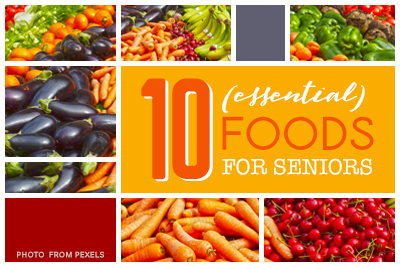
Eating a well-balanced diet and having a healthy lifestyle go hand in hand when aiming to live a healthy life. According to the World Health Organization (WHO), 65% of diseases that seniors face is a result of not eating properly.
Lack of nutrition causes a huge gap in nourishment essential to keeping the body in best condition. However, there are age-related challenges that hinder keeping a healthy routine. One of the critical things affecting eating right is loss appetite. It presents a challenge in getting essential nutrition and vitamins needed to increase quality of life, especially in senior years when the body undergoes changes. Some of the changes are the following:
- Decreased Sensitivity: Senses change naturally as people age, and unfortunately the critical senses for eating such as the sense of smell and the sense of taste in decline causes a direct impact on appetite.
- Medication side effects: Some medications can cause nausea and reduced appetites. As a result of this, eating can be overlooked.
- Poor dental health: Dental issues such as missing teeth, receding gums or jaw pain also affects eating. Chewing can be painful and exceptionally uncomfortable, depressing the will to eat.
- Finances: There are times when buying quality food is not prioritized when money is tight or skipped altogether in exchange for the need to save.
- Lack of transportation: Going to the grocery poses a number of danger while in traffic, in the parking lot or in the grocery specially for seniors who are more vulnerable to mishaps.
Knowing the difficulties in getting the right food for nourishment can help seniors be more aware of possible trying scenarios when faced with them by being prepared to act upon the situation.
Below is a quick run down of select essential vitamins and nutrients, what food contains them, and their role in keeping your body healthy.
- Foods high in Omega-3 fatty acids: Omega-3 can be found in salmon, tuna, flaxseed, soybeans and walnuts. It is recommended to have a serving of Omega-3 fatty acids twice a week because it has been found that these types of foods help prevent inflammation and can keep the brain alert.
- High Calcium foods: Calcium helps us build and maintain our bones and lowers our blood pressure. Eating foods that are high in calcium is critical to help prevent the body from taking calcium out of the bones which can in turn make them fragile, leading to osteoporosis. Milk, yogurt cheese and leafy green vegetables contain calcium as well.
- Foods rich in fiber: Fiber helps maintain good digestion are known to reduce the risk of developing heart disease. Nuts, wholegrain bread, pasta, fruits and vegetables are rich in fiber.
- Water: Dehydration causes drowsiness and confusion among its other downside. To avoid dehydration it is advisable to drink plenty of water particularly for seniors who do not often feel the need to drink. One way to stay hydrated without being overwhelmed is to put water in a handy bottle to drink throughout the day.
- Iron-rich foods: Iron is essential to the body. Iron produces hemoglobin which carries oxygen in the blood. Not having enough iron might lead to feeling tired and lethargic.
- Foods high in vitamin C: Vitamin C produces collagen in your skin which helps keep elasticity and eliminates dead skin cells. Vitamin C is also crucial for bone repair and healing wounds. Fruits and vegetables are a good source of vitamin C.
- Foods containing vitamin D: Vitamin D aids in the absorption of calcium keeping the bones dense and free from osteoporosis and other potential diseases. It is in cereals, milk, yogurt, eggs and certain fish like tuna and salmon.
- Vitamin B12: B12 maintains nerve function and production of red blood cells and DNA. Good sources of B12 are dairy, meat and poultry products.
- Foods rich in Potassium: Potassium is responsible for cell function and reduces blood pressure and helps strengthen bones. Bananas, prunes and potatoes are high in Potassium.
- Foods high in Magnesium: Magnesium plays an important role in keeping your heart and immune system healthy. Magnesium is mainly found in nuts, whole grains, fruit and vegetables.
It is preferable to have a professional guide your diet plan and lifestyle modification. Please consult your doctor before making any changes to your diet.
Source: http://www.aging.com/elderly-nutrition-101-10-foods-to-keep-you-healthy/

